Ibuprofen, also sold over-the-counter as Advil, Midol, and Motrin, is a non-steroidal anti-inflammatory drug (NSAID) commonly used for everyday pain relief. Because it’s so readily available, it can seem relatively harmless, but it’s a strong medication that can have unwanted side effects when mixed with alcohol. Both substances can irritate your intestinal tract and stomach, and taking ibuprofen while drinking can put you at risk for ulcers, kidney damage, and other ailments. People with preexisting liver and kidney conditions face the highest risk of harm.
Table of Contents
Are Alcohol and Ibuprofen Safe?
People drink alcohol to unwind and relax. It’s not difficult to imagine taking a dose of ibuprofen with a glass of wine to ease your aches and pains at the end of the day, but mixing alcohol and ibuprofen is not a good idea. Although each is safe when consumed in moderation, taking them together can cause side effects that can negatively affect your health. Most people perceive alcohol and ibuprofen to be fairly harmless so long as they are not abused. Mixing alcohol and ibuprofen creates no desirable or recreational effects, and people may not associate taking them together with physical harm. Unfortunately, a lack of knowledge or intention does not mitigate risk. Although occasionally consuming ibuprofen with a small amount of alcohol is unlikely to cause serious damage in healthy people, the health risks increase with regular use or too-strong dosages. Because it’s so easy to accidentally combine and over-consume these substances, it’s best to avoid them altogether.
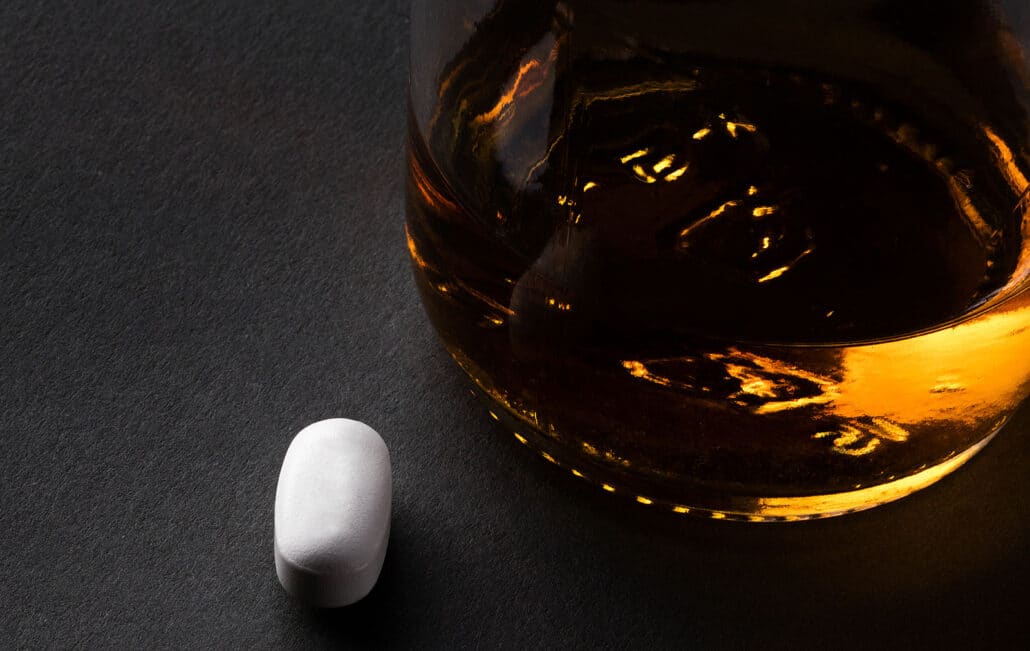
How Does Ibuprofen Work?
Ibuprofen works by blocking cyclooxygenase (COX), an enzyme responsible for creating prostaglandins that cause pain and swelling when the body faces an internal threat. They also protect the digestive tract’s mucous lining, help your kidneys filter out impurities, and prevent excessive bleeding. Artificially lowering your prostaglandin levels can increase your risk of gastrointestinal irritation, ulcers, bleeding problems, kidney damage, heart attack, and stroke. Alcohol can increase the intensity of ibuprofen’s side effects, including internal bleeding, drowsiness, and rapid heartbeat.
Gastrointestinal Issues
Alcohol causes your stomach to produce more acid, while ibuprofen makes your gut susceptible to irritation, also known as gastritis. Taking ibuprofen regularly in the long term or in large doses can increase and even triple the chances of stomach bleeding. Using ibuprofen occasionally (say, weekly or monthly) at the recommended dose lowers the risk of stomach ulcers. If you drink daily, have a few drinks at a time, and also take ibuprofen, the substances are likely to interact and push that risk higher.
Signs of gastrointestinal bleeding include:
- Bloody or tar-like stools
- Ongoing, persistent stomach pain or cramps
- Vomit that contains brown granules that look like coffee
- Bloody vomit
- Dizziness or fainting
- A racing pulse
Seek medical attention if you experience these symptoms.
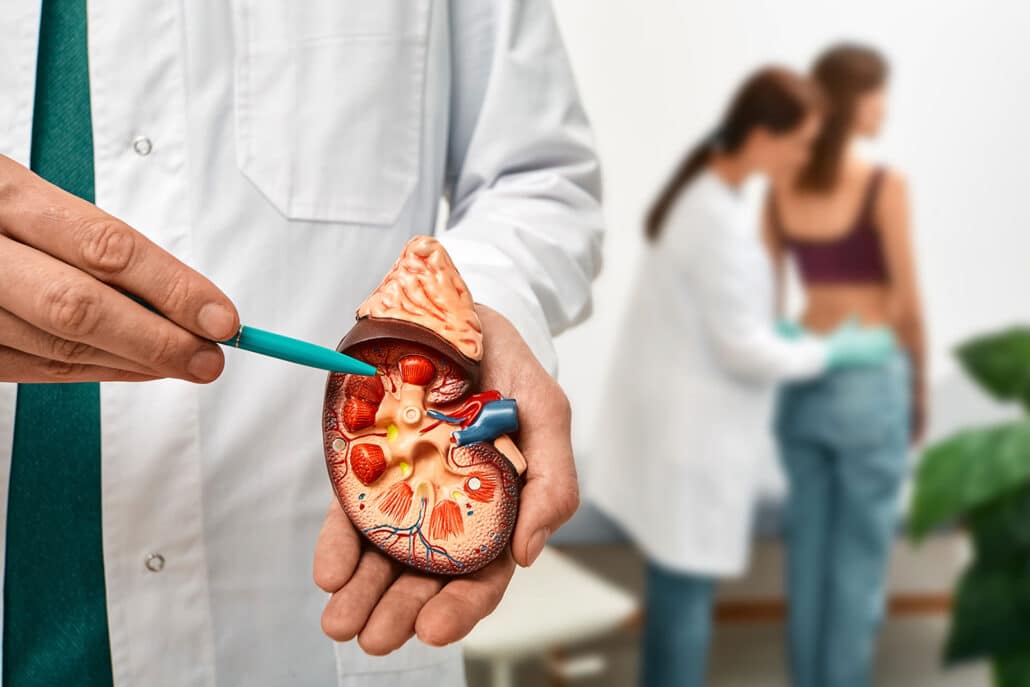
Kidney Damage
Alcohol puts a strain on the kidneys, and drinking heavily regularly can lead to chronic kidney disease. As ibuprofen decreases the level of prostaglandins, it reduces blood flow to the kidneys and affects how well these organs can filter out harmful substances, including alcohol. Usually, healthy people will not experience significant harm from a temporary drop in kidney function, but ibuprofen can be dangerous for people with kidney disease. Taking alcohol and ibuprofen together can increase the incidence and severity of kidney damage and kidney failure. Drowsiness, breathing difficulties, and swollen hands and feet can all be symptoms of kidney damage. People who experience these symptoms or have kidney damage should consult a doctor to determine what levels of alcohol and ibuprofen can be consumed safely.
Heart Attack and Stroke
People who regularly consume ibuprofen experience more heart attacks and strokes than people who don’t take ibuprofen. Consuming more than three drinks a day while also taking ibuprofen increases this risk.
Drowsiness and Cognitive Impairment
When taken on their own, alcohol and ibuprofen can cause drowsiness. Combining these substances can make you feel extremely sleepy and affect your balance, concentration, and reaction time. Lack of alertness and coordination, slow movement, and confusion are impairments that can increase the risk of harmful accidents.
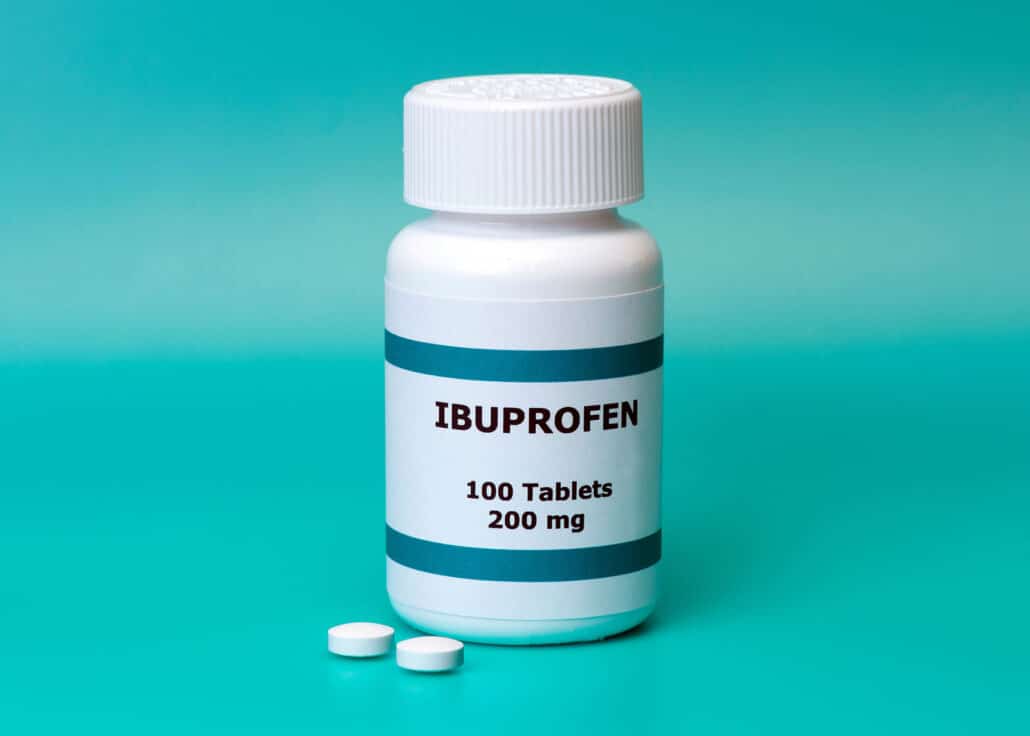
Who Faces the Greatest Risk of Harm From Mixing Alcohol and Ibuprofen?
Heavy drinkers and people who frequently take ibuprofen face the highest risk of harm from mixing the two substances.
High-risk populations include:
- People who take high doses of ibuprofen
- People with cognitive impairments that affect memory or judgment
- Heavy drinkers
- Teenagers who drink
- People with kidney or liver disease
- Older adults who metabolize alcohol slowly
- People who are unaware of the potential side effects of ibuprofen
Older Adults
Older adults tend to take more medication than younger people, so they are situationally more susceptible to experiencing negative side effects from drug interactions. Since a person’s ability to break down alcohol decreases with age, older people who drink are more likely to experience a negative interaction when they take ibuprofen. Mixing alcohol and medications, including ibuprofen, increases the risk of falls and other accidents.
Heavy Drinkers
People who consume more than a few glasses of alcohol daily or rely on alcohol may be at greater risk for liver, kidney, and other health issues. Since overconsuming alcohol can result in stomach upset, cognitive impairment, and other symptoms, it can be tricky to recognize the combined side effects of mixing alcohol and ibuprofen. Heavy drinkers may also be more likely to forget that taking ibuprofen after drinking (or vice versa) is a bad idea. If you believe that someone in your life may be mixing ibuprofen with alcohol, it is best to mention it or otherwise intervene with kindness to prevent accidents. The side effects that may indicate the need for attention include:
- Gastritis and vomiting
- Frequent headaches
- Fainting
- Fatigue and lethargy
- Clumsiness and stumbling
- An increase in avoidable accidents
Signs a person may need support for alcohol addiction include:
- Depression
- Irritability
- Personality changes
- Seclusion
- Missing work
- Anxiety and fearfulness
If you notice or experience these symptoms, seek help from a medical professional immediately. The sooner you seek treatment, the better you will feel.
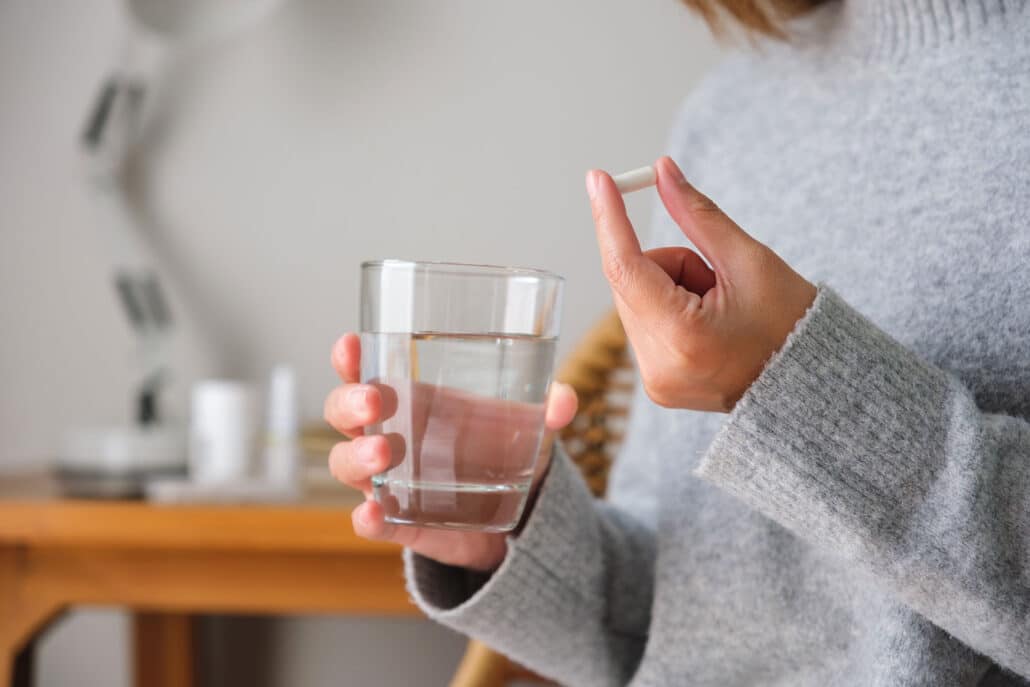
How to Take Ibuprofen and Alcohol Separately
Healthy people who take ibuprofen infrequently and accidentally have a drink when they do take a dose may experience few to no side effects, but it’s always best to avoid mixing these substances. Taking ibuprofen or drinking alcohol with a meal can also mitigate any problems. Health problems like substance abuse disorders and liver or kidney disease increase the risk of adverse effects.
People should take the lowest dosage of ibuprofen as infrequently as possible. Chronic pain should not be managed with ibuprofen.
Be Aware
Mixing alcohol and ibuprofen is often unintentional. People often forget or don’t realize that common cold medicines and combination headache and flu medications contain ibuprofen. Reading labels on any medication before consumption is key to avoiding the over-consumption of ibuprofen and preventing harmful drug interactions. Moderate alcohol consumption (no more than one drink per day for women and two drinks per day for men) can prevent adverse effects. It’s important to follow the recommended guidelines for alcohol consumption based on gender and body weight. One also needs to consider the strength of a particular beverage as well as the volume of the drink.
One alcoholic drink could be characterized as:
- 5 ounces of wine with a 12% alcohol content
- 12 ounces of beer with a 5% alcohol content
- A 1.5-ounce shot of 40% alcohol-content distilled spirits or liquor, such as whisky, gin, or vodka
When Can I Take Ibuprofen After Drinking Alcohol?
If you have had more than one drink, it’s best to wait until the alcohol leaves your body before taking ibuprofen. It can take about 25 hours for alcohol to completely leave a healthy person’s system, and women, older people, and heavy drinkers often metabolize alcohol more slowly. If you have a hangover, resist the urge to take ibuprofen. It’s likely the alcohol has not completely left your system, and your stomach may also be more sensitive than usual.
When Can I Drink Alcohol After Taking Ibuprofen?
Although the pain relief from alcohol can last up to six hours, it can take up to ten hours for your body to break down the drug. This means you should avoid drinking alcohol for at least ten hours after taking ibuprofen to reduce any chance of side effects.
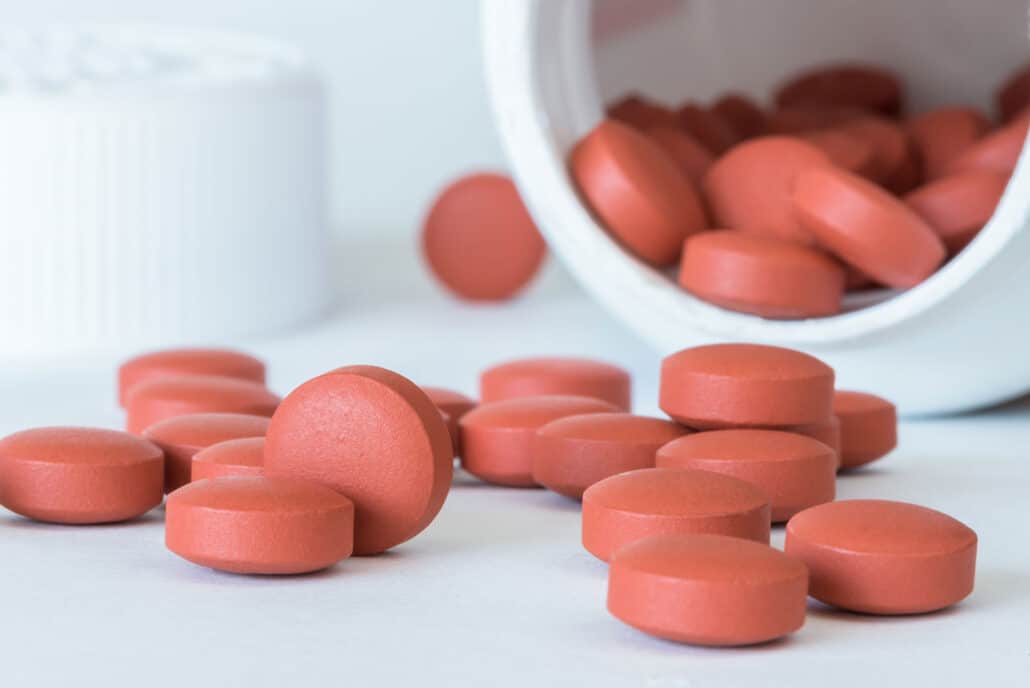
Alternative Forms of Pain Relief
If you want to avoid taking ibuprofen altogether, you can try a different approach to pain management.
Drug-free alternatives to ibuprofen include:
- Heating pads or a warm bath
- Massage
- Light exercise
- Mentholated topical treatments
- Acupuncture
- Yoga
Reduce Your Reliance on Alcohol and Medication
Dependence on alcohol or medication can diminish your quality of life. Long Island Interventions can help you reduce your reliance on medication and alcohol to live a happier, healthier life. Our professional staff will create a personalized treatment plan to help you regain your physical and emotional well-being. Contact us to learn more about starting on the path to a better life.
FAQ
Is it OK to drink alcohol with ibuprofen?
How long after taking ibuprofen can you have a drink of alcohol?
Will ibuprofen and alcohol kill you?
Can you drink on ibuprofen 600mg?
Can you mix 800 mg ibuprofen and alcohol?
Published on: 2022-09-30
Updated on: 2025-05-05

